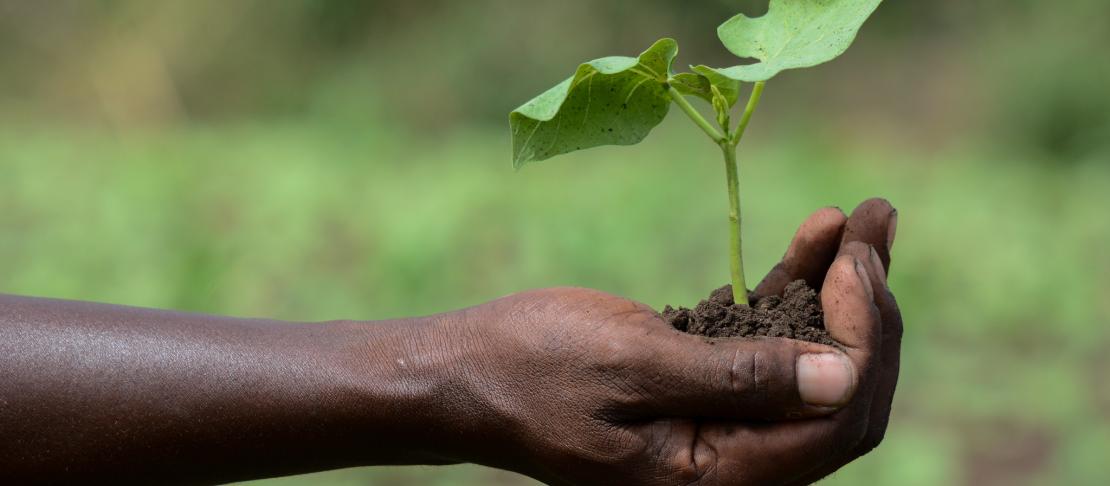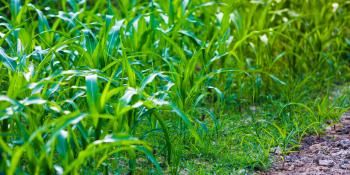Strengthening strategic partnerships between science and policy in Kenya

At a recent meeting in Kenya, scientists advised decision-makers to prioritize building resilience in crops, livestock, and fisheries.
The Government of Kenya has made great strides in developing polices and frameworks to address and integrate climate change across different sectors of the economy such as agriculture, energy and water. Given the complex nature of climate science and the evolving adaptation and mitigation strategies, there is a need for continuous awareness and capacity building. This is especially true within the political context of the country in which those holding critical decision-making positions change constantly.
Decision-makers in the agriculture sector at national and county levels were invited for a high-level breakfast meeting on 23 January 2020. The meeting brought together 45 participants from various departments and institutions such as the Council of Governors (COG), Kenya Agricultural and Livestock Research Organisation (KARLO), Swiss Agency for Development and Cooperation (SDC) and the Agricultural Sector Development Support Programme (ASDSP), among others.
Linking science and agricultural policy
The meeting provided a platform for scientists from the CGIAR, universities and NGOs to share evidence and priority policy actions. Discussions focused on building resilience in crops, livestock, and fisheries sub-sectors including capacity building which cuts across all the sectors.
Evan Givertz of the Alliance of Bioversity International and CIAT (the Alliance) gave a presentation on policy options for building the resilience of crop production under climate change. He highlighted that while wheat, maize and beans are particularly sensitive to climate change, multiple stress-tolerant varieties (to heat, pests and diseases) can help farmers to adapt. In addition, there is a need to strengthen the acquisition and dissemination of climate data and information for enhanced agro-advisories to farmers and other crop value chain actors. This can be done through extension services and ICTs as one of the priority actions for the crop sub-sector.
See the photos from the meeting on Flickr:
Focusing on livestock, Todd Crane from the International Livestock Research Institute (ILRI) pointed out the need to domesticate livestock data collection to support the use of locally-derived emissions calculations in reporting on Nationally Determined Contribution (NDC) targets. He called on the State Department of Livestock to implement climate-proof policy instruments and frameworks for the livestock sub-sector, including the proposed Livestock Master Plan, taking into account climate change and low-emission development opportunities.
The fishing communities are also being affected by climate change. Edward Kimakwa of the World Wide Fund for Nature (WWF) highlighted the need for the fisheries sub-sector to be included in the updated NDC. He added that county climate change adaptation and mitigation plans should integrate fisheries.
In concluding the presentations, Evans Kituyi of the Aga Khan University’s East Africa Institute (EAI) noted that existing policy instruments provide an enabling environment for capacity development across the different sub-sectors in agriculture. While the National Strategy for Agricultural Education is currently being developed, climate change has not been adequately captured in the curricula and this provides an opportunity to integrate climate considerations. In terms of priority actions, he called for a review of the curricula for tertiary-level institutions to reflect climate-resilient and low carbon solutions.
H.E Muthomi Njuki, Chairperson of the Agriculture Committee in the Council of Governors emphasizes the need for #communitybased solutions for climate change focusing on #farmers, #livestock keepers and #fishfarmers in #Kenya during the high-level #policymakers breakfast meeting. pic.twitter.com/s4Dt48oBDa
— Catherine Mungai (@catmungai) January 23, 2020
Way forward
Political will is critical and necessary for policy implementation. And while science is a critical component of developing solutions for climate change, the meeting attendees recognized the need for action. Some of the next steps include:
- Strengthening the climate change units at national and county level and creating a coordination and information sharing mechanism specifically for agriculture; and
- Engaging with the science community to update the agriculture component of the NDCs which is due to be revised this year including capacity building for livestock Measurement, Reporting & Verification (MRV).
The CGIAR partners, along with the African Group of Negotiators-Expert Support (AGNES), EAI and WWF will continue to engage with the Ministry of Agriculture, Livestock, Fisheries and Cooperatives to move forward with these actions and help bring evidence-based decision-making to Kenyan agriculture and climate arenas.
Read more:
- Kenya county climate risk profiles
- See photos from the meeting on Flickr
- Brief: Policy actions for building resilience of livestock production under climate change
- Brief: Strengthening education, extension and training to accelerate climate resilience and low carbon development in the agriculture sector
- Brief: Policy options for building resilience of crop production under climate change
- Brief: Policy actions for building resilience of fisheries development in a changing climate
The high-level breakfast meeting was held by the Ministry of Agriculture, Livestock, Fisheries and Cooperatives partnered with the CGIAR Research Program on Climate Change, Agriculture and Food Security (CCAFS), the African Group of Negotiators-Expert Support (AGNES), the International Livestock Research Institute (ILRI), the Alliance of Bioversity International and CIAT (the Alliance), Aga Khan University’s East Africa Institute (EAI) and World Wide Fund for Nature (WWF).
Catherine Mungai is the Partnerships and Policy Specialist at CCAFS East Africa. Laura Cramer is the Science Officer at the CCAFS Priorities and Policies for CSA Flagship. Joab Osumba is the Research Officer at CCAFS East Africa. Maren Radeny is the Science Officer at CCAFS East Africa.




